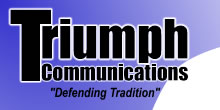|
|
This lecture was delivered in Post Falls, Idaho in 2015.
This talk is going to be on Malachi Martin. Most informed traditional Catholics have heard of Malachi Martin; he has had a major impact on the traditional movement. Of all the traditional authors, he has had the greatest success in spreading the traditional message outside of the boundaries of our movement.
A brief sketch of Malachi Martin's life is this: He was born in Ireland in 1920 and entered the Jesuit order. In the Jesuit order, the question that you ask is: "What is your field?" In Fr. Martin's case, he was a paleographer, or one who specialized in the field of ancient handwriting. For this reason, he worked in the Middle East, studying ancient documents from biblical times. When the ecumenically-minded Pope John XXIII took office he brought Malachi Martin to Rome because he wanted someone with a wide range of contacts with Moslems and Jews, which in his work he would have had to develop. Fr. Martin was an assistant to Cardinal Bea and active participant in the Second Vatican Council. At some point, Fr. Martin seems to have become disillusioned with the direction of the Church and in particular, his Jesuit order, and he asked Pope Paul VI if he could be released from the Jesuits. He was released from his vows of poverty and obedience, but not chastity. From this point onwards, he did not have a position in the official Church. He did continue to say Mass privately, hear confessions, and provide counseling to souls who were coping with the crisis in the Church. In 1965, Fr. Martin left Rome and came to the United States, where from then till his death, he lived in New York City. He received a general commission to work in the field of communications. He wrote sixteen books, two of which, Hostage to the Devil and The Jesuits, were bestsellers. He also wrote numerous articles and was a frequent guest on radio and television programs. My connection with Fr. Martin began in 1990, when I asked him if he would do a series of interviews with me and he generously agreed. During the last decade of his life, I conducted one series of interviews with him annually. In 2003, I began to transcribe these interviews and publish them in book format.
Using my experiences with him, I would like to draw a picture of Malachi Martin the man. On one occasion, he was late for an interview with me because he had gone out to buy food for a hungry family. On another occasion, he interrupted an interviewing session to go to confession to a ninety year-old priest. He was always conscious of his mortality and seemed in the last decade of his life to be actively preparing his soul for judgment. He may have been very conscious of his mortality because in the late 1980's he had a heart attack and from then onwards was in frail health, although you wouldn't know it from his voice, which right to the end remained very vigorous. Despite being in frail health, he drove himself relentlessly to help souls who were troubled because of the turmoil in the Church. I and others active in the traditional movement have been amazed at the number of people we have run across who were in contact with Fr. Martin. He kept up a heavy scheduling of writing, interviewing, and media appearances. He was concerned about the well-being of individual souls and the condition of the Church. On one occasion when I asked him if he would be interested in assisting in a project, his response was, "Do you think it would help?"
His work was very fruitful. I have received numerous testimonials, many of which I have posted on our website, which document how Fr. Martin helped them to either recover their faith, persevere in the faith, or bring them over to Tradition. The webmaster of the Una Voce website said that a large number of souls who came over to tradition did so through Malachi Martin. Fr. Peter Scott, the former district superior of the United States for the Society of St. Pius X, told me that our communications have brought souls over to Tradition. Fr. Martin has helped many souls to more clearly understand the nature of the crisis in the Church. These individuals often said that Fr. Martin's description of the grave situation of the Church did not make the situation better, but it did help them to cope with it because they then understood it.
There is evidence that Rome regarded Fr. Martin as a figure of importance. From his time in Rome, he knew the contents of the Third Secret of Fatima. During his interviews, he gave away as much as he could. It is interesting that Rome waited until Fr. Martin's death to release what most of us believe is not the full third secret. If Rome had released what was a false or incomplete third secret, then Fr. Martin would have been freed from his obligation not to reveal it to the world. Fr. Martin spoke often on his belief that using the words "for all" rather than "for many" during the consecration at Mass invalidated the Mass. There is evidence that this assertion generated much controversy and put pressure on Rome to deal with the issue. It is interesting that when Pope Benedict XVI made a set of revisions to the New Mass that this error of translation was corrected.
Fr. Martin had one of the finest minds of the post-conciliar era. Michael Matt, editor of the Remnant, stated, "Such an extraordinary mind is not likely to soon come again to our beleaguered Church." What Fr. Martin had was a gift to take the confusing jumble of the daily experiences of faithful Catholics suffering through the Church's present trial and weave them together to form an overall picture of what we are experiencing today. One of our listeners stated that our series of interviews with Malachi Martin form the most complete and accurate representation of the period of Church history following Vatican II.
What is Fr. Martin's worldview? His Irish heritage and Jesuit training have played a role in shaping his worldview. Another factor which seems to have played an even greater role in shaping his worldview is his experience as an exorcist. It is rare for members of the human race, even clergy, to directly experience the supernatural. Malachi Martin was one of those rare individuals to sort of half live on the other side of reality. What we read about in the newspapers is only what is on the surface. So, what we get from the newspapers is not the full picture. Many decisions in geopolitics, economics, religion, and other fields are made behind the scenes. Behind this hidden reality is yet another level of unseen reality, the supernatural realm. According to Fr. Martin, the cosmic battle between the good and evil forces of the supernatural is influencing the day to day realities which we experience in our everyday lives. So, why is Fr. Martin's worldview complete and accurate? It is because it incorporates the reality of the supernatural realm.
In our times, the chains which have held Lucifer in check since Our Lord rose from the dead have been loosened. Thus, the influence of Lucifer today is much stronger than in previous times. Pope Leo XIII attempted to hold this process in check by ordering the saying of the Leonine prayers after Mass. Everything is being turned upside down, as the civilization which grew out of our Christian religion expires. Today, we live in a world which is completely alien to us. The morals and families which form the building blocks of our civilization are crumbling. Will the new order being constructed succeed? According to Malachi Martin, the answer is no. Modern man is attempting to construct a new world without man. Such a world will not have God's blessing and will not succeed.
There is a prophetic component to Malachi Martin's work. Events in the Church and in the world at large are largely unfolding as he said they would. After he wrote the book, The Keys of this Blood, his publisher asked him, "Do you really want to include the words ‘new world order' in your book?" Yet, very soon after that President George Bush was frequently using these very words in his daily communications. Fr. Martin spoke about homosexual marriage long before it became a reality. He wrote and spoke about the possibility of a pope's resignation for years before Benedict XVI resigned his papacy. Even many traditional Catholics believed that Fr. Martin was off the wall when he stated satanic rituals had been performed in Rome. Recently, Rome's chief exorcist, Fr. Amorth, stated that Rome was filled with satanic cults. Again and again, Fr. Martin's assertions have eventually been proved to be correct.
According to Malachi Martin, we are headed into what is a long and dark night, when it will take heroic virtue to carry out normal tasks such as raising a family. Fortunately, Fr. Martin has given us a ray of hope which can form the core of what we need to survive as we cross the spiritual desert of modern-day civilization. This ray of hope is the essence of Catholicism, our daily devotions, the conversations that we are allowed to have with heaven. It is this essence of Catholicism which distinguishes our religion from other religions. We have at our disposal a rich treasure chest of devotions, readings, sacramentals, and so on. We always have the angels at our disposal, if only we would call upon them. Fr. Martin said that we can find always find the truth, but we must search for it. Our salvation is still possible, but we must work for it.
When we add together the various aspects of Malachi Martin, his dedication to the Church and the souls of his fellow men, the fruitfulness of his work, and his gift of prophecy, what we have is the portrait of a saint. It will not happen under the present modernist regime in charge of Rome, but we should keep alive the idea of promoting for sainthood the heroes of the traditional movement, those who kept the flame of the Faith alive during this dark night. Beyond the obvious candidate of Archbishop Marcel Lefebvre, there are many other good men and women who have toiled tirelessly and thanklessly to maintain the Faith in these trying times when the Church has been deserted by those who should have been defending it. One candidate for sainthood who comes to mind is Fr. Yves Normandin, who for many years almost single-handedly kept the Traditional Latin Mass alive in of Canada as he incessantly criss-crossed this huge country. In this dark night of what appears to be the twilight of our civilization, Malachi Martin used his gifts to communicate the truths and traditions of the Faith to a generation of mankind which abandoned it. That he did so with considerable success is a testament to his courage, the strength of his character, and his determination to put his talents to the service of the greater good.
|



